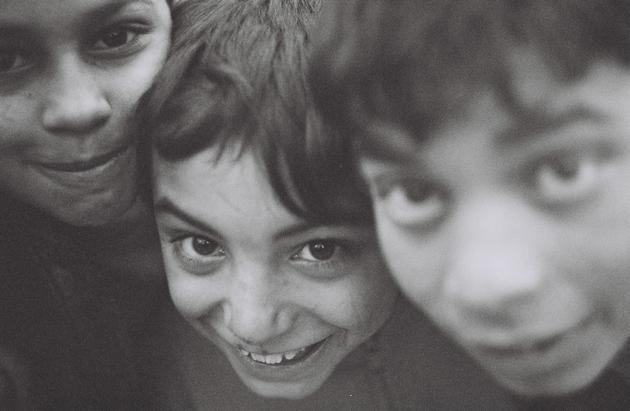Roma Crisis Committee to Czech EdMin: Equal access to education for Roma

Young Romani people associated with the Crisis Committee (Krizový štáb) have written an open letter to the Czech Education Minister and Prime Minister in which they express their support for inclusive education and the necessary measures which the Government and the Education Ministry should adopt to ensure equal access to education for all citizens of the Czech Republic. "Currently Romani children continue to be disproportionately enrolled into ‘practical primary schools’ that educate their pupils according to the primary education program’s appendix for pupils with light mental disability," states the open letter. News server Romea.cz publishes it in full translation below.
Open letter to the Prime Minister and Education Minister
STOP the indirect discrimination of Romani children in the Czech schools! Let’s make equal access to education real
Dear Mr Prime Minister, Dear Mr Minister,
As civically active young members of the Romani national minority living in the Czech Republic, we would like to express our support for inclusive education and the necessary measures which the Government of the Czech Republic and the Ministry of Education, Youth and Sport of the Czech Republic should adopt to ensure equal access to education for all citizens in this country. Here we are primarily referring to the Charter of Fundamental Rights and Freedoms of the Czech Republic, Article 22 (1), section IV, where it says everyone has the right to education, and the Education Code, Section 2, which sets forth the aims and principles of education, i.e., equal access to education and consideration for the educational needs of the individual.
The Anti-Discrimination Act of the Czech Republic, adopted in 2009, defines the right to equal treatment and the prohibition on discrimination in access to education and its provision in Section 1 (i), first part. Many international treaties also declare the right to equal access to education: The Convention on the Rights of the Child (Article 28), the Additional Protocol to the European Convention on the Protection of Human Rights and Freedoms (Article 2), and the International Covenant on Economic, Social and Cultural Rights (Article 13). The Czech Republic is also a party to the European Union Charter of Fundamental Rights, which includes the right to education and access to professional and other education in Article 14, section II.
The Czech Republic was condemned in 2007 by the European Court of Human Rights for its indirect discrimination of Romani children in education through their incorrect placement into what were once called "special schools". Five years have passed since that judgment and the existing Czech legal order continues to involve the inappropriate distribution of pupils into several categories. Assigning a pupil with special educational needs into a particularly legislated category of disability is a significant determinant of his or her future educational career and restricts his or her equal opportunity.
Currently Romani children continue to be disproportionately enrolled into ‘practical primary schools’ educating pupils according to the primary education program’s appendix for pupils with light mental disability. One proof of this is the thematic report entitled "Process of transforming the former special schools in the 2011/2012 academic year – Czech School Inspectorate" (Postup transformace bývalých zvláštních škol České školní inspekce za rok 2011/2012), which found that 26.4 % of Romani pupils are educated according to such an educational program, a disproportionate number considering that the Romani minority constitutes only 2 % of the entire population in the Czech Republic.
As young citizens of this country, we want the state to prosper. According to research by the World Bank, better-educated Romani people can expect to make 110 % more money than their less-educated counterparts and thereby contribute more to the state. Joost de Laat, a World Bank economist who studies human development in Europe and Central Asia, presented the study to the International Steering Committee of the Decade of Roma Inclusion in Prague and said the following: "If Romani people of productive age (16-64) enjoyed equal opportunity in access to work and to salaries equivalent to those of their non-Romani counterparts, the country would have billions of euros more annually in its budget. If this were to occur in all of the countries of Central Europe and the Balkans, equal opportunity on the labor market would general a total of EUR 10 billion annually."
Let us therefore make it possible for the Romani people living in this country to become equal citizens on the labor market. The Government and the relevant bodies of the Czech Republic should ensure equal access to education in mainstream elementary schools for all.
With respect,
David Tišer, member of the Crisis Committee